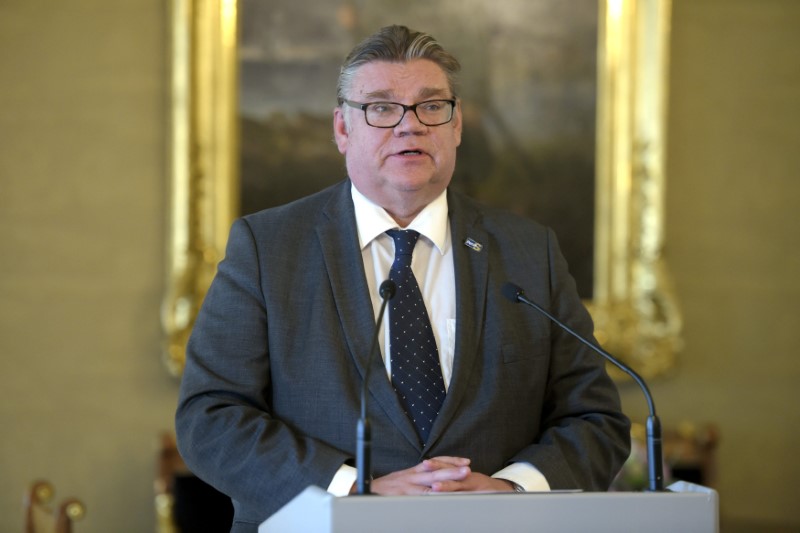By Jussi Rosendahl and Tuomas Forsell
HELSINKI (Reuters) - Finland's euroskeptic foreign minister believes other states might follow Britain's lead and quit the European Union if authorities in Brussels press on with efforts to integrate member states more deeply.
But Timo Soini, whose diehard opposition to the bloc's sovereign bailouts spooked financial markets in 2011, says Finland will not be among the leavers and admits that June's Brexit vote has for now boosted support for EU membership within the bloc.
"I don't expect a wave of referendums. In the short term, the support for the EU has increased in Europe," Soini told Reuters in an interview.
He remains critical of EU institutions and his Finns party, which describes itself as nationalist, was a prime mover in tightening the country's immigration controls last year.
But having in the past dismissed rescue packages for Greece and Portugal as "pyramid schemes" and the EU as "a Soviet Union for rich people", Soini now views careful cooperation rather than confrontation with Brussels as the best way forward.
"This government will not organize such a referendum. But of course this can be discussed in society," he said.
"In the end, we need some kind of structure for cooperation in Europe... I've said lots of things about the EU along the way but I'm not in favor of an uncontrollable collapse, that wouldn't be good for anybody."
Rather that adopting a "revenge mentality" against Britain, the lesson for Europe - with far-right or anti-EU parties riding high in polls in France, the Netherlands and Austria while a new anti-immigrant party makes waves in Germany - was to drop all ideas of closer political or fiscal union.
"The EU must stick to basic things, such as jobs, economy and security.
"If it can't do that, the justification for the whole thing will crumble," and other states might also vote to leave, he said.
Then known as True Finns, Soini's party and his anti-EU rhetoric struck a chord among Finland's working class at the 2011 election, winning 19 percent of the vote.
Until 2014, it belonged to the same populist grouping in the European Parliament as Britain's pro-Brexit UKIP party.
Soini then moved the Finns to the ECR bloc, which includes Britain's Conservatives and, a year later following parliamentary elections in which it won 18 percent, entered government for the first time in a three-party coalition.
BUMPY TRANSITION
That transition towards the political mainstream has been bumpy, however, and Soini declined to confirm he would seek a further term as party leader next year.
Support for the Finns fell to 9.6 percent in the latest opinion poll in September as many of its core voters bridled at compromises that Soini has taken as part of an austerity-focused government that has cut workers' benefits while catering for an influx of migrants.
"Of the three coalition partners, we have been the one to pay the cost," Soini said.
"Some of our supporters are miffed. Many ... think that our line and rhetoric are not tough enough at the moment... But Finland needs a strong majority government, and no one can say anymore that we wouldn't be up to the task."
The coalition, which also includes the Centre Party and the conservative NCP, almost collapsed last year over hotly debated health care reforms, but Soini said it would battle on to try to fix a troubled domestic economy.
"We disagree on some issues, but ...we have been able to come up with solutions so far."
Asked whether he would like to continue into a third decade as leader after the party's congress next summer, the 54-year-old Soini was non-committal.

"This is an interesting job... but then again, 20 years is a long time," he said.
(editing by John Stonestreet)